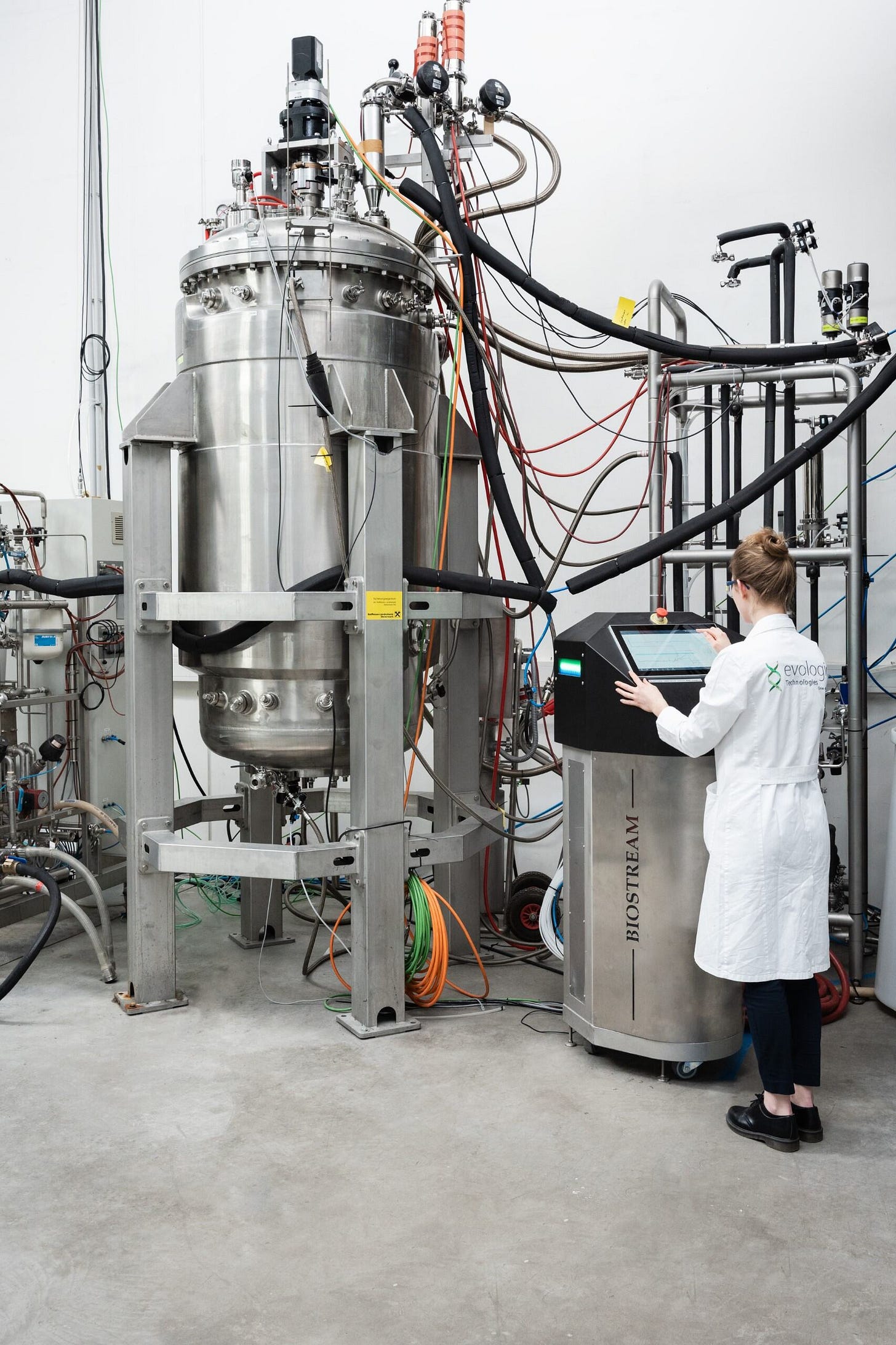🔬 Hy-five: Morphine-producing Fungus, Fixing The AMF Industry, Fungal Instruments, Biodiesel, Horizon Funding
Sporadic round-up of mycological research and industry news.
Hello dear fungi enthusiast,
Exciting news! The 2025 Horizon CBE Joint Undertaking calls are now live. These funding opportunities are designed to accelerate circular and bio-based innovation across sectors—including food, materials, and agriculture. If you're working with fungi-based technologies or looking to partner on a proposal, this is the time to explore what’s on offer.
Take your time to review the calls and feel free to reach out if you'd like to discuss a potential application with us. I know a few people who can help navigate the application process.
Learn more about 2025 Horizon CBE Joint Undertaking here.
#1 Fixing a Broken Industry: Evologic’s Game-Changing AMF Biomanufacturing Technology
The agricultural industry is under immense pressure to boost productivity while navigating a growing list of challenges—soaring fertiliser costs, climate change, soil degradation, and biodiversity loss. Biological solutions have positioned themselves as the main contenders to solve these challenges effectively. Particularly mycorrhizal fungi have been grabbing the attention of scientists for decades, offering a wide array of critical benefits to plants and the environment – improving nutrient absorption, enhancing drought resilience and soil structure, and supporting carbon sequestration.
To address this, Austria based Evologic Technologies, has developed a new approach to AMF production, addressing product quality and costs challenges. Based on its proprietary technology, Evologic claims to have achieved 7 times greater product concentration compared to state-ot-the-art approaches, and delivered a product that meets the highest standards of quality specifications necessary for desired field performance, successfully paving the road for large scale in-vitro AMF production.
#2 A Morphine-Producing Fungus? Meet Pithoascus kurdistanensis
In a discovery that blurs the line between plant and fungal metabolism, researchers from the University of Kurdistan and Université Laval have described a new fungal species, Pithoascus kurdistanensis, that naturally produces morphine, codeine, and papaverine. Isolated from poppies (Papaver spp.) in Iran’s Kurdistan Province, this endophytic fungus mimics the biosynthetic profile of its host in a striking example of cross-kingdom biochemical convergence.
Alkaloids like morphine and codeine—potent analgesics—are traditionally sourced from poppies. These plant-based compounds are difficult and expensive to synthesise commercially due to their complex structures. The ability of a fungus to produce these same molecules opens the door to potentially more sustainable, scalable production through fermentation rather than agriculture.
3# Mucorales Fungi: The Future of Sustainable Biodiesel?
Biofuels are critical in the transition to a low-carbon economy, but traditional sources such as oilseed crops present significant environmental challenges. The global production of bioethanol has surged, with the U.S. and Brazil alone producing approximately 85% of the world's total bioethanol—nearly 24.4 billion gallons combined. Yet, biofuels derived from crops can intensify land use conflicts and contribute to biodiversity loss.
Research conducted by scientists from the Universidade Federal de Pernambuco and Universidade Federal do Piauí recently highlighted the exceptional lipid-producing capabilities of these fungi, particularly species within the genera Mucor and Rhizopus. Certain Mucor species can accumulate lipids comprising up to 40% of their dry weight, making them highly efficient for biodiesel production.
4# Enhancing Musical Wood: How Fungi Improve Acoustic Performance
For centuries, wood has been the material of choice for crafting musical instruments, especially stringed instruments, due to its unique acoustic properties. Iconic instruments such as the violins made by Antonio Stradivari owe their renowned sound quality partly to specific wood characteristics—low density and high elasticity. Recent research from Chungbuk National University and the National Institute of Forest Science, South Korea, explores a novel method of enhancing these properties using wood-decaying fungi.
Need support? Maybe we can help.
MycoStories works with founders, investors, industry leaders, and research institutions.
Leveraging a global network of subject-matter experts, MycoStories helps founders scale their business, guides investors and industry leaders in identifying high-potential opportunities, and empower researchers to translate their work into real-world applications.
Don’t hesitate to reach-out. If we can’t help, someone within the community will. ✊🏽








